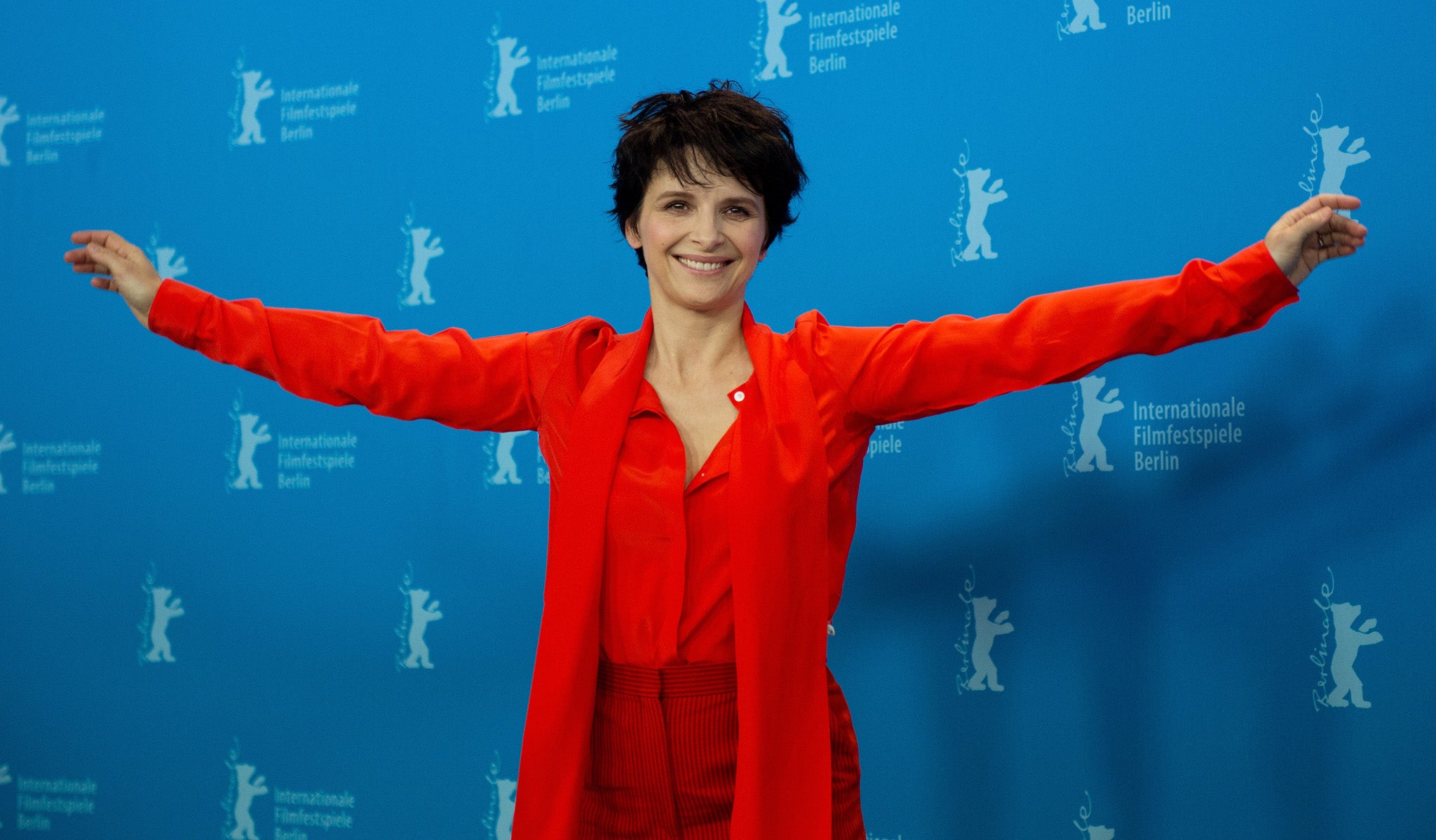Juliette Binoche performs with real asylum patients in Camille Claudel biopic
The film chart's the celebrated artist and mistress of Rodin when she was confined in a mental institution

The story of French sculptress Camille Claudel is almost impossibly sad, and Juliette Binoche attempts to portray that tragedy in a new film set in an asylum where the actress performs alongside mentally disabled patients.
Camille Claudel 1915, in competition at the Berlin film festival, depicts three days in the life of an artist who spent her last 29 years in a mental institution in southern France, confined against her will by her family.
Director Bruno Dumont set the action in 1915, because it meant Binoche's age would coincide with that of Claudel at that time, just beginning her stay at the asylum at Montdevergues.
He and Binoche based their research on medical notes and letters between Camille and her brother, the renowned poet and devout Catholic Paul Claudel, who was the only member of her family to visit her, and even then only occasionally.
"I read everything that she'd written," said French actress Binoche, an Oscar winner in The English Patient, of her research for the role.
"I steeped myself in her character and writings and there was a nothingness there, an abandonment, the absence of sculpture, the absence of the family, the absence of affection, the absence of violence," the 48-year-old told reporters.
In the film, despair, depression and uncontrollable tears are mixed with girlish excitement at the prospect of an impending visit from Paul.
The plot builds up to their meeting, during which Camille begs her brother to free her. But the pious and pompous Paul ignores both her and the head of the asylum who recommends she should return to normal society.
Viewers wonder whether Camille or Paul is the more deranged.
Camille is convinced people are trying to poison her, and blames sculptor Auguste Rodin, with whom she had a long affair, for ruining her life.

Watch Apple TV+ free for 7 days
New subscribers only. £8.99/mo. after free trial. Plan auto-renews until cancelled

Watch Apple TV+ free for 7 days
New subscribers only. £8.99/mo. after free trial. Plan auto-renews until cancelled
Meanwhile Paul speaks of his belief like a man possessed, basking in self importance and yet impervious to his older sister's impassioned entreaties to be set free.
"His only protection is God, but in his love of God he is in a total spiritual delirium and he is as lost as her," Dumont said of Paul.
"They had something very similar. But Camille didn't have the protection of God, she was entirely wrapped up in her love of Rodin."
The action seeks to convey the drudgery of life at the asylum, housed in an ancient, cloistered building.
Camille is allowed to make her own meals - always a boiled potato and egg - due to her paranoia, and is a constant help to the nuns who care for the patients.
At times she is at peace, at others she weeps in despair.
In the end she remained at the asylum until 1943 when she died in her late 70s. She was buried in a communal grave, and no one from her family, not even Paul, attended her funeral.
Dumont decided to cast patients to play themselves in the film, and the sisters caring for them were their real-life nurses. Some were aware enough to give their own consent, and others had their families do so on their behalf.
The interaction between them and the professional actors adds spontaneity to the scenes, as does the fact that much of the dialogue is improvised.
"I never know what's going to happen, and that's exactly what interests me," Dumont said of his choices. "Each time I say 'action', something unexpected will happen, but the unexpected is welcome, it's even necessary in this kind of work."
Reuters
Subscribe to Independent Premium to bookmark this article
Want to bookmark your favourite articles and stories to read or reference later? Start your Independent Premium subscription today.

Join our commenting forum
Join thought-provoking conversations, follow other Independent readers and see their replies